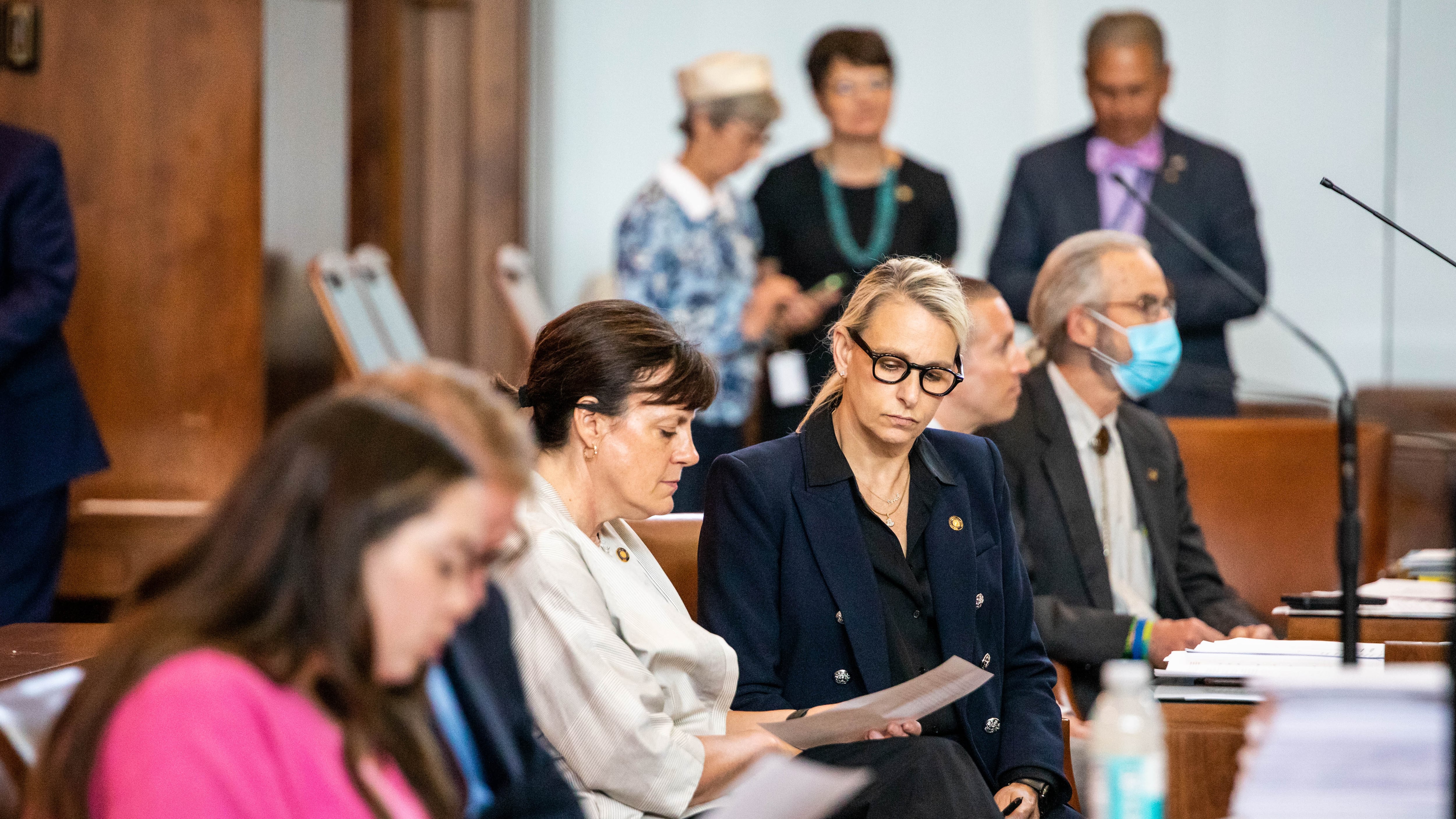The Legislature’s Joint Committee on Addiction and Community Safety Response released a plan today to respond to soaring overdose deaths and widespread open-air drug use on Oregon streets.
The plan includes a proposal to recriminalize the possession of most drugs by making possession a Class C misdemeanor. That would undo a key tenet of Measure 110, the novel decriminalization measure Oregon voters approved in 2020.
There are numerous other proposals included in the plan Democrats released today: making it easier for people to obtain treatment, insurance coverage and housing, for example, and increasing the workforce of treatment providers.
Most of those ideas are likely to find bipartisan agreement, but the recriminalization proposal drew immediate rebuke from advocacy groups on the left who have formed a coalition called Oregonians for Recovery and Safety. They say it would mark a return to the failed war on drugs. Republicans and groups on the right, meanwhile, say the threat of being charged with a Class C misdemeanor doesn’t provide enough incentive for people with substance use disorder to seek treatment.
“Treating the tens of thousands of Oregonians suffering from addiction as criminals is pointless, irresponsible, and profoundly wasteful,” said Andy Ko, executive director of the Partnership for Safety and Justice. “Regressive policies of the past half-century too often elevated punishment as if it were health care. We need an honest response to the health crisis we face.”
Under Measure 110, people can be given a citation and a $100 fine for possession of drugs. The fine is waived if they call a hotline for services. But in practice, police in many counties haven’t bothered writing tickets; almost nobody pays the fines or calls the hotline number seeking services. Elevating drug possession to a Class C misdemeanor could subject offenders to up to 30 days in jail and a $1,250 fine, although the proposal provides for diversion to substance abuse treatment that would eliminate criminal sanctions.
Max Williams, a former Republican lawmaker and director of the Oregon Department of Corrections who leads a group called Fix & Improve Measure 110, said today’s proposal would result in another ineffectual slap on the wrist.
“Anything short of reclassifying deadly drugs as a Class A misdemeanor crime will be inadequate to effectively steer more people into more treatment more quickly,” Williams said. “With addictions and overdoses on the rise, the legislature needs to act swiftly and boldly to fix Measure 110.” (The penalties for a Class A misdemeanor include up to one year in jail and a $6,250 fine.)
Lawmakers will convene Feb. 5 for an odd-year session that can last no longer than 35 days. Although the proposal released today is the result of four months of work by a bipartisan committee made up of members from both chambers, the leaders of that committee, state Sen. Kate Lieber (D-Portland) and Rep. Jason Kropf (D-Bend), both former prosecutors, will have a lot of work to do to find consensus in little more than a month.
Republicans in both chambers issued statements critical of the package, and although Democrats can pass legislation without GOP votes, left-leaning members of the House in particular are unlikely to support recriminalization.
“We need to urgently expand drug treatment and addiction prevention in our state while stopping drug dealers, confiscating hard drugs, and cleaning up trash and graffiti,” Lieber said. “We won’t solve this problem overnight, but this plan will get people the help they need, clean up our communities, and save lives.”
